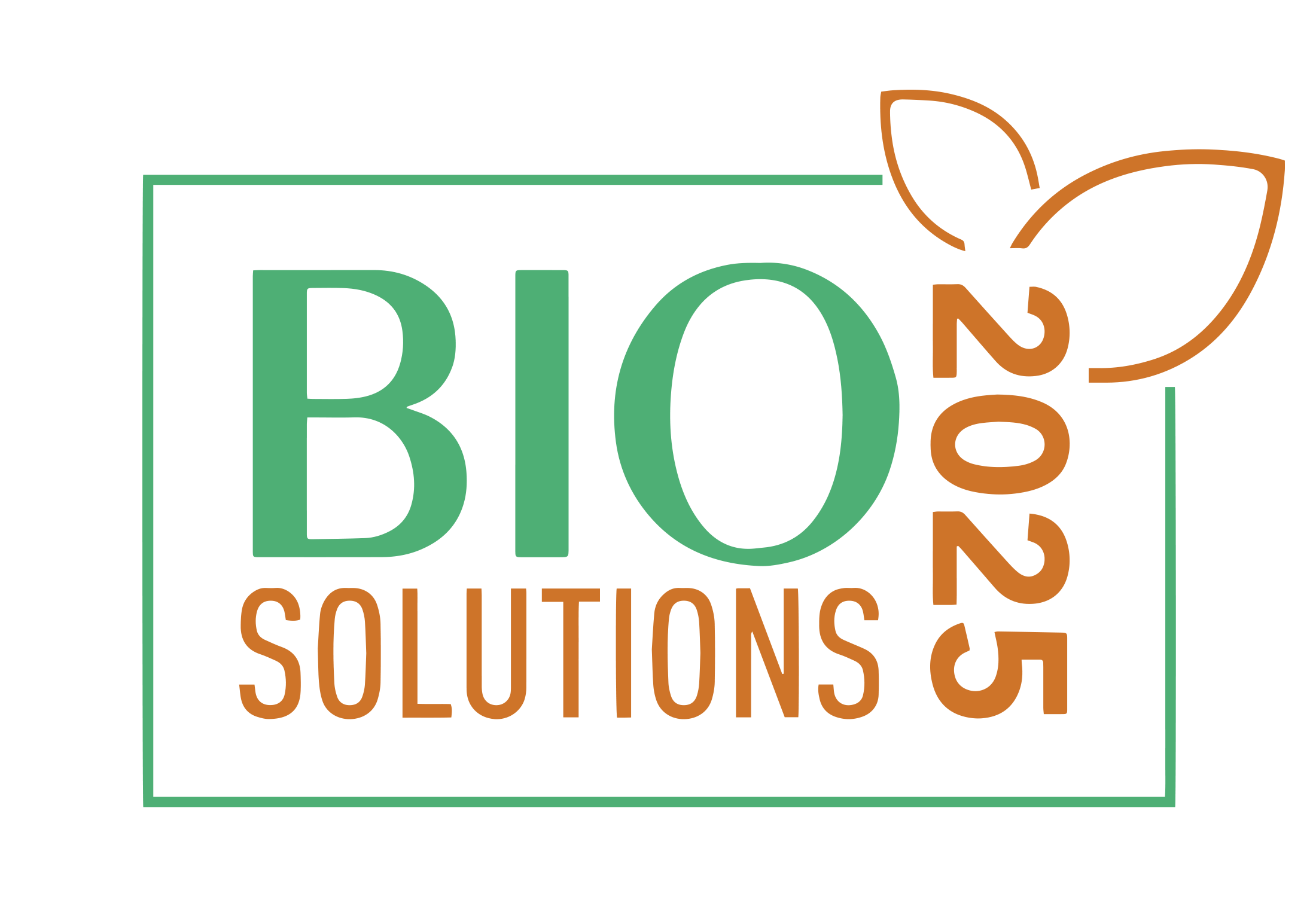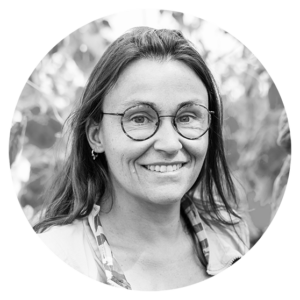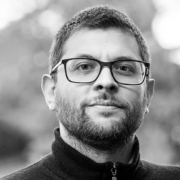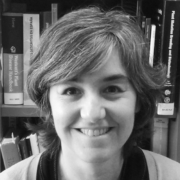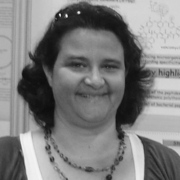Ioannis Stringlis
Dr. Ioannis Stringlis is Assistant Professor of Phytopathology at the Agricultural University of Athens. He is working on a) plant-microbiome-pathogen interactions, b) mechanisms of induced systemic resistance in plants, c) interaction between iron deficiency and pathogens, and d) plant defense mechanisms activated in response to phytopathogens and beneficial microbes. Prior to his appointment as Assistant Professor, he has performed his PhD studies and later worked as postdoctoral researcher at Plant-Microbe Interactions group (Chair: Prof. Corné Pieterse) in Utrecht University in the Netherlands (2012 – 2023). He has obtained his BSc (2003 – 2008) and MSc (2010 – 2012) degrees in Agricultural University of Athens.
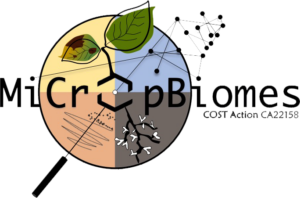
Anna Bonnatera
Dr. Anna Bonaterra is a researcher in the Plant Pathology group at the Institute of Food and Agricultural Technology at the University of Girona. She is also a member of a consolidated research group recognized by the Generalitat de Catalunya (2021 SGR 01597). Her current research focuses on developing plant protection products based on biocontrol agents and functional peptides to fight relevant plant diseases. This work has resulted in effective solutions, including peptides and biocontrol agents, to manage fungal and bacterial diseases. Currently, her efforts are directed toward obtaining functional peptides to combat strategic emergent bacterial plant diseases such as the caused by the quarantine bacterial pathogen Xylella fastidiosa.

Claire Prigent-Combaret
Claire Prigent-Combaret (DR CNRS) is working in the Laboratory of Microbial Ecology of Lyon, at University Lyon 1. She is working on the molecular and genetics mechanisms of plant growth promotion and plant protection by plant-beneficial rhizobacteria (genomics, transcriptomics, metabolomics, and functional genetics). She is interesting in the root colonization properties of PGPR (Plant Growth-Promoting Rhizobacteria), their interactions with other rhizobacteria in root-associated biofilms and the dynamics of their populations in the rhizosphere. She heads the Rhizosphere team. The main questions addressed by her group concern the ecology and plant beneficial mechanisms of plant-beneficial bacteria, the taxonomic and functional diversity of microbial populations within the rhizosphere, and the plant responses to PGPR in terms of plant growth and development, plant protection against stresses and plant metabolomics and transcriptomics responses.

Monica Höfte
Monica Höfte is a general plant pathologist studying fundamental and practical aspects of plant-pathogen interactions. She works on biological and integrated control of plant pathogenic fungi and bacteria in a wide variety of tropical and temperate crops. Mainly soilborne pathogens such as Pythium, Phytophthora, Fusarium, Verticillium and Rhizoctonia are studied. In biocontrol, the focus is on cyclic lipopeptides produced by Pseudomonas and Bacillus strains.

Azucena González
Dr. González Coloma is a Senior Scientific Researcher in the Department of Plant Protection of the Institute of Agricultural Sciences of the CSIC in Spain. Her line of research focuses on the biotechnological production of botanical and fungal biopesticides. Her research includes bioprospection, production and optimization of biopesticides from the flora of various regions of Spain and other parts of the world, agricultural residues and fungal endophytes. The group of biopesticides that she leads is multidisciplinary, it screens and identifies metabolites with insecticidal, antifungal and nematicidal effects. She also explores mechanisms of action and structure-activity relationships, biotechnological optimization of the production of endophyte metabolites, plant metagenomic approaches to endophyte discovery and priming effects of these active metabolites on crops. She has published more than 200 scientific articles in indexed journals, elaborated patents (11) and has directed 14 Doctoral Theses among other contributions. She has led numerous national and international research projects at national, international and cooperation levels.
Valérie Leclère
Valérie Leclère is currently professor in microbiology at the University of Lille where she co-leads the team « Microbial secondary metabolites » in the cross-border joint unit BioEcoAgro. The research group is mainly interested in lipopeptides with skills covering the whole value chain (prediction by genome mining, production processes, structural characterization, biological activities especially related to biocontrol applications).
She has spent near 20 years working on the nonribosomal peptides biosynthetic pathways containing the modular mega-enzyles NRPSs, with a combination of bioinformatics and molecular biology approaches. She participated to the development of bioinformatics tools as the Norine database and workflows facilitating the identification of original metabolites from genomic data. She is also interested in exploring the biodiversity of the lipopeptides mainly produced by bacteria as Bacillus, Pseudomonas or Burkholderia.
Tilmann Weber
Tilmann Weber is Professor for Natural Products Genome Mining and Associate Scientific Director at the Novo Nordisk Foundation Center for Biosustainability of the Technical University of Denmark. Here he leads the interdisciplinary research group “Natural Products Genome Mining”. His main research interest is focused on deciphering the molecular pathways and engineering the biosynthesis of natural products by combining genetic, biochemical and bioinformatics methods. He is a pioneer in developing software for the automated genome mining (e.g., antiSMASH, antiSMASH-DB, BGCFLow) and analysis and engineering of secondary metabolite biosynthetic pathways encoding the biosynthesis of antibiotics or compounds for sustainable agriculture. To enable modern metabolic engineering strategies in under-studied secondary/specialized metabolite producing microorganisms, he is furthermore deeply involved in developing CRISPR-based metabolic engineering tools for bacteria.
Marie-Virginie Salvia
Dr. Marie-Virginie Salvia (HDR) joined the CRIOBE laboratory located at the University of Perpignan in September 2015 as an associate professor. Her research interests are focused on both analytical and environmental chemistry (water, soil, sediment, plant matrices). Indeed, she develops innovative approaches based on metabolomics in order to answer environmental problematics (ex. evaluation of the environmental fate and impact of biopesticides). Her studies has mainly led to 25 publications, 1 patent and 1 book chapter. She is treasurer in the BioV association.
Michele Perazzolli
Michele Perazzolli is associate professor in plant physiology at the University of Trento (Italy). His research is focused on characterizing plant-microbe interactions responsible for plant growth promotion, induction of plant resistance against pathogens, and mitigation of abiotic stresses derived from climate change. He is studying the role of volatile and non-volatile metabolites in plant-microbe and plant-plant communications and plant responses elicited by the colonization of beneficial microbes to clarify mechanisms responsible for abiotic and biotic stress tolerance.
Elsa Ballini
Dr. Elsa Ballini, professor associate in the Plant Pathology department of Institut Agro Montpellier. Her research focuses on plant pathology, specifically on the interactions between plants and pathogenic agents. During her PhD and postdoctoral experiences, she specialized in the interactions between cereals and phytopathogenic fungi. She studies a globally significant disease: rice blast, caused by Magnaporthe oryzae. More recently, she has been investigating other fungal pathosystems affecting durum wheat. The main scientific objective of her work is to understand how biotic and abiotic environmental factors influence the resistance and immunity of cereals in response to fungal attacks.
